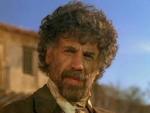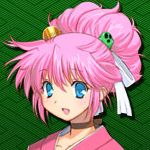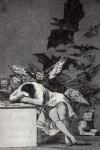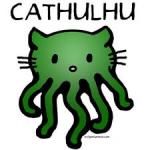What is Epic Fantasy? and is the current genre system useful?
#1

Posted 13 June 2013 - 12:36 PM
I've just read a bunch of 'Essential' Epic Fantasy lists and it got me thinking (because of the vast diversity of the picks) that the current market driven genre is basically useless from a story standpoint. I think everyone has a personal definition of Epic Fantasy and for me it mostly has to do with plot. Is there a big war coming? Is there a lot of politics involved? Do people in death become heroes? Things like this define Epic Fantasy for me, so a thing like the Dresden Files as we go along looks more and more like an Epic Fantasy rather than Urban Fantasy. Even then if we look further back stories were not separated by their plot but by the themes of the tale. Tragedy, Epic, Comedy. Hell even Action is a more useful label than 'urban fantasy' or 'heroic fantasy' for me.
So the question is how do you define Epic Fantasy and do you think current way we define genre is anymore than a way to market books to certain types of people?
So the question is how do you define Epic Fantasy and do you think current way we define genre is anymore than a way to market books to certain types of people?
#2

Posted 13 June 2013 - 12:53 PM
In my mind it has to do with scope. Books with multiple plot lines, different types of stories and intrigues (it can't all be politics and it can't all be war,etc), many central characters and biiiig arcing storylines make them epic. While I don't think Dresden can be considered totally urban anymore, I still don't consider it epic. While there are far reaching plot lines and many different characters, it's too linear with only Harry as the main character.
I've always been crazy but its kept me from going insane.
#3

Posted 13 June 2013 - 02:06 PM
To me, "Epic" means "scope". As in,, "There's a huge world out there, that exists. What we are being told/shown directly is but a fraction of it". Multiple plot lines is one (and most common) way to achieve it. In that sense, Dresden made the jump to "kind of epic" once the war started. It wasn't about just Chicago anymore, the whole world became something at stake.
A good contrast with that would be the "Watch" Books by Sergei Lukyanenko. As early as "Day Watch", there were things taking place outside of Moscow. But although there was a lot of talk about worldwide implications and such, It was the same core group of main characters that had to deal with it. We don't hear about other Watches, except as minor supporting characters. In this sense, it is a lot more purely "urban" than the Dresdencrack.
A good contrast with that would be the "Watch" Books by Sergei Lukyanenko. As early as "Day Watch", there were things taking place outside of Moscow. But although there was a lot of talk about worldwide implications and such, It was the same core group of main characters that had to deal with it. We don't hear about other Watches, except as minor supporting characters. In this sense, it is a lot more purely "urban" than the Dresdencrack.
#4

Posted 13 June 2013 - 02:09 PM
As you guys have said, "Epic Fantasy" can include many elements, such as long arcing plots, many PoVs, large-scale worldbuilding, huge armies clashing, etc. But not everyone's definition is exactly the same, and some of these elements are more important to some people than others. So for Person A, anything with large-scale worldbuilding can be "Epic Fantasy" but for Person B it *must* have many PoVs to be considered "Epic Fantasy". I don't think there is any universal definition for it because it contains so many elements, so people will always differ somewhat.
A term like "Urban Fantasy" is a bit easier, as it only really consists of one primary element - being fantasy in an urban setting. So it's easier to have a consensus on what is and isn't "Urban Fantasy".
IMO, these sub-genre terms are not exclusive. They're more like "tags". A book or series can be both "Urban Fantasy" and "Epic Fantasy", or both "High Fantasy" and "Historical Fantasy", or both "Sword & Sorcery" and "Erotic Fantasy", etc.
A term like "Urban Fantasy" is a bit easier, as it only really consists of one primary element - being fantasy in an urban setting. So it's easier to have a consensus on what is and isn't "Urban Fantasy".
IMO, these sub-genre terms are not exclusive. They're more like "tags". A book or series can be both "Urban Fantasy" and "Epic Fantasy", or both "High Fantasy" and "Historical Fantasy", or both "Sword & Sorcery" and "Erotic Fantasy", etc.
#5

Posted 13 June 2013 - 02:18 PM
I always liked the term "high fantasy", which is probably interchangeable with "epic fantasy". The connotations of the descriptor in the former are just loads more fun.
Theorizing that one could poop within his own lifetime, Doctor Poopet led an elite group of scientists into the desert to develop a top secret project, known as QUANTUM POOP. Pressured to prove his theories or lose funding, Doctor Poopet, prematurely stepped into the Poop Accelerator and vanished. He awoke to find himself in the past, suffering from partial amnesia and facing a mirror image that was not his own. Fortunately, contact with his own bowels was made through brainwave transmissions, with Al the Poop Observer, who appeared in the form of a hologram that only Doctor Poopet could see and hear. Trapped in the past, Doctor Poopet finds himself pooping from life to life, pooping things right, that once went wrong and hoping each time, that his next poop will be the poop home.
#6

Posted 13 June 2013 - 02:27 PM
 Spoilsport Stonny, on 13 June 2013 - 02:18 PM, said:
Spoilsport Stonny, on 13 June 2013 - 02:18 PM, said:
I always liked the term "high fantasy", which is probably interchangeable with "epic fantasy". The connotations of the descriptor in the former are just loads more fun.
I don't see them as the same. To me, Epic Fantasy is about the large scope, intense world-building and variety of characters and settings, similarly to what Ment said above, but High Fantasy to me means there is an easy division between Good and Evil, and usually fairly high stakes a la Evil side threatening the end of the world.
So Malazan and Dragonlance:The War of Souls would both be Epic Fantasy to me, but only the War of Souls would be High Fantasy.
#7

Posted 13 June 2013 - 02:36 PM
I always took it to mean a high level of quality and thought and meaning, on a grand scale. But I am no expert, that was just my interpretation. So I googled it, and far be it for me to defer to wikipedia, but they say the following:
Again, though, its all subjective. Peace.
Quote
High fantasy (also referred to as epic fantasy) is a sub-genre of fantasy fiction, defined either by its taking place in an imaginary world distinct from our own or by the epic stature of its characters, themes and plot. Quintessential works of high fantasy, such as The Hobbit, The Lord of the Rings and The Worm Ouroboros, have both of these attributes. Accordingly, works where the fantasy world impinges on our world, or where the characters are concerned only with adventure or personal goals (as in sword and sorcery fiction) are less likely to be classed as high fantasy.
Again, though, its all subjective. Peace.
Theorizing that one could poop within his own lifetime, Doctor Poopet led an elite group of scientists into the desert to develop a top secret project, known as QUANTUM POOP. Pressured to prove his theories or lose funding, Doctor Poopet, prematurely stepped into the Poop Accelerator and vanished. He awoke to find himself in the past, suffering from partial amnesia and facing a mirror image that was not his own. Fortunately, contact with his own bowels was made through brainwave transmissions, with Al the Poop Observer, who appeared in the form of a hologram that only Doctor Poopet could see and hear. Trapped in the past, Doctor Poopet finds himself pooping from life to life, pooping things right, that once went wrong and hoping each time, that his next poop will be the poop home.
#8

Posted 17 June 2013 - 08:20 AM
'High fantasy' in my mind was always a bit like the 'literary fiction' tag - its mainly used to mark out the most dense and sprawling such novels, along with those considered old canon that lack a pulp element or which it's been conveniently forgotten that they ever emerged form the insalubrious depths of pulp.
I am the Onyx Wizards
#9

Posted 17 June 2013 - 08:44 AM
As far as I've ever seen them used, "high" and "low" fantasy tend to denote whether the stories take place in a created fantasy world such as Middle-Earth (high) or just a version of our world with fantastic elements like, say, Bewitched (low). Now that I've looked up those things they seem to be technically correct, but almost obsolete given how much overlap and splintering of genre there's been. Where does an urban fantasy like the Dresden Files fall, or Harry Potter? D'iversify makes a good point, because one development -- perhaps just from misappropriation of the terms -- is the conflation of high fantasy with high brow, and low fantasy with low brow. And now that I think of it, perhaps I have heard "high" fantasy used as a synonym for epic fantasy, though I can't remember a specific example, and I never think of them as synonyms.
They came with white hands and left with red hands.
#10

Posted 18 June 2013 - 02:34 PM
Acknowledging that the terms are virtually meaningless in present day, i always thought of 'high fantasy' as sort of classic do-gooders on quest to defeat evil with all the usual archetypes coming out to play, while 'epic fantasy' has a wide scope of characters and locations, typically the cast ofthousands, nations at war, gods and dragons fill the sky kind of thing.
THIS IS YOUR REMINDER THAT THERE IS A
'VIEW NEW CONTENT' BUTTON THAT
ALLOWS YOU TO VIEW NEW CONTENT
'VIEW NEW CONTENT' BUTTON THAT
ALLOWS YOU TO VIEW NEW CONTENT
#11

Posted 18 June 2013 - 08:01 PM
Yeah, very few literary genres survive much scrutiny as effective labels.
Take good care to keep relations civil
It's decent in the first of gentlemen
To speak friendly, Even to the devil
It's decent in the first of gentlemen
To speak friendly, Even to the devil
#12

Posted 18 June 2013 - 08:54 PM
I have always found that people who make epic lists to be slightly scummy (but that could be the mafia player in me).
If something is good then it is good regardless of whether it is epic. If something is shit then it is shit regardless of how many books and points of view..see goodkind.
Give me good books and lose the epic label.
If something is good then it is good regardless of whether it is epic. If something is shit then it is shit regardless of how many books and points of view..see goodkind.
Give me good books and lose the epic label.
How many fucking people do I have to hammer in order to get that across.
Hinter - Vengy - DIE. I trusted you you bastard!!!!!!!
Steven Erikson made drowning in alien cum possible - Obdigore
Hinter - Vengy - DIE. I trusted you you bastard!!!!!!!
Steven Erikson made drowning in alien cum possible - Obdigore
#13

Posted 19 June 2013 - 12:22 AM
Harry potter, to me, is not 'high fantasy'. Something that takes place in our world, even if there is a secret history/society on our world, is not 'separate' from our world.
Which would make something like, say, Narnia "high fantasy". Sure, it has its real world portions, but it isn't focused on "our world" but "that world".
High fantasy then, is a sort of acknowledgement that magic and the supernatural do not exist in our world and could only be present in a different universe with different laws.
Low fantasy says "na-uh!" and tries to show that magic is indeed possible and/or present in or world.
Which means that 'magic realism' is a subset of low fantasy.
An Epic, to me, simply means that the story is extraordinary. You are not dealing with normal day-to-day events and/or problems. You are dealing with something that normally does not happen. In regular fiction, that would be something like searching for a horde of treasure, seeking revenge through a convoluted plan that takes decades, or fighting in the Great War. Non-epic would be finding someone to marry, or just going through 'a day in the life of-'.
Fantasy, being as it is, tends towards the epic. To have a non-epic fantasy would seem to be a sort of waste... "here's a world where evil is incarnate and continually threatens the order of the universe, but we're going to focus on the dull problems of a farmer who may hear of events but only cares about growing and selling his crop."
Which would make something like, say, Narnia "high fantasy". Sure, it has its real world portions, but it isn't focused on "our world" but "that world".
High fantasy then, is a sort of acknowledgement that magic and the supernatural do not exist in our world and could only be present in a different universe with different laws.
Low fantasy says "na-uh!" and tries to show that magic is indeed possible and/or present in or world.
Which means that 'magic realism' is a subset of low fantasy.
An Epic, to me, simply means that the story is extraordinary. You are not dealing with normal day-to-day events and/or problems. You are dealing with something that normally does not happen. In regular fiction, that would be something like searching for a horde of treasure, seeking revenge through a convoluted plan that takes decades, or fighting in the Great War. Non-epic would be finding someone to marry, or just going through 'a day in the life of-'.
Fantasy, being as it is, tends towards the epic. To have a non-epic fantasy would seem to be a sort of waste... "here's a world where evil is incarnate and continually threatens the order of the universe, but we're going to focus on the dull problems of a farmer who may hear of events but only cares about growing and selling his crop."
#14

Posted 19 June 2013 - 06:18 AM
Well, I don't know if I would go so far as to call it a waste. Guy Gavriel Kay writes some really beautiful fantasy that I would consider non-epic. The kingdom might split between 2 factions and it doesn't really matter to the day to day people who comes out on top, but it still makes for a great story because he can really make you care about that farmer, or that minor official's daughter, or that little bard. But the order of the universe is hardly ever threatened. I've read a few Patricia McKillip novels that made me very, very happy. They were just gorgeous. But they were things like, "here's the story of an ordinary farmgirl who had a run-in with some bad fairies", or "here is the story of a lady imprisoned in a tower and how she gets rescued." But I agree that fantasy as a genre tends to emphasize those big good and evil, fate of the world hangs in the balance sort of conflicts. It can get old. When it does, I find the non-epic stuff cleanses the palate a little.
I always thought when people talked about high fantasy, it meant lots of magic and a very old-fashioned, almost classic, feel. I've seen Arthurian fantasy put in this category, even though the setting is our world. I don't think it's that fashionable these days though.
I always thought when people talked about high fantasy, it meant lots of magic and a very old-fashioned, almost classic, feel. I've seen Arthurian fantasy put in this category, even though the setting is our world. I don't think it's that fashionable these days though.
#15

Posted 19 June 2013 - 10:23 PM
Defining what is "epic fantasy" and what is "high fantasy," and what is "urban fantasy" might be a fruitless task... as then you might have to define what fantasy itself is.
On the discussion of stories happening in "our world" or a created one... how similar does a world have to be to be "our world"? Jacqueline Carey's Kushiel's series is set in a world that's geographically a lot like ours, but is very different in many ways. I wouldn't call her work in that series either epic fantasy or high fantasy, but it's just an example.
As Una mentions, Arthurian tales are often categorized as high fantasy, despite taking place in "our world." Then again, how much like our world is it, really?
What about the Iliad and the Odyssey?
On the discussion of stories happening in "our world" or a created one... how similar does a world have to be to be "our world"? Jacqueline Carey's Kushiel's series is set in a world that's geographically a lot like ours, but is very different in many ways. I wouldn't call her work in that series either epic fantasy or high fantasy, but it's just an example.
As Una mentions, Arthurian tales are often categorized as high fantasy, despite taking place in "our world." Then again, how much like our world is it, really?
What about the Iliad and the Odyssey?
Laseen did nothing wrong.
I demand Telorast & Curdle plushies.
I demand Telorast & Curdle plushies.
#16

Posted 20 June 2013 - 04:13 AM
 Kanese S, on 19 June 2013 - 10:23 PM, said:
Kanese S, on 19 June 2013 - 10:23 PM, said:
Defining what is "epic fantasy" and what is "high fantasy," and what is "urban fantasy" might be a fruitless task... as then you might have to define what fantasy itself is.
Quote
On the discussion of stories happening in "our world" or a created one... how similar does a world have to be to be "our world"? Jacqueline Carey's Kushiel's series is set in a world that's geographically a lot like ours, but is very different in many ways. I wouldn't call her work in that series either epic fantasy or high fantasy, but it's just an example.
A tougher example would be something like Middle-Earth... which to all appearances is a different world from our own... however, the author has said as much that Middle-Earth is actually part of our world in some Elder Age. Also Shannara, if I recall correctly, is hinted as being a world that developed after some post-nuclear apocalypse. So, perhaps a different 'fantastical' age would also qualify as being different enough from our world to qualify as high-fantasy. This might also explain why Arthurian tales may, at times, be high fantasy.
Quote
What about the Iliad and the Odyssey?
Definitely epics in the original sense. I would call them low fantasy, sense they are intended to take place in actual lands known to the Greeks.
#17

Posted 20 June 2013 - 06:04 AM
The Iliad and the Odyssey are epics in the original sense, I totally agree.
It's our world, but you could even call those stories legends and you wouldn't exactly be wrong. I mean, people actually believed in those gods at one point in time. And despite being written down, weren't they meant to be recited, and therefore part of an oral tradition?
I've actually never heard the term "low fantasy" before, so I am reading the comments about it with interest.
It's our world, but you could even call those stories legends and you wouldn't exactly be wrong. I mean, people actually believed in those gods at one point in time. And despite being written down, weren't they meant to be recited, and therefore part of an oral tradition?
I've actually never heard the term "low fantasy" before, so I am reading the comments about it with interest.
#18

Posted 20 June 2013 - 09:12 AM
'Low fantasy' to me fits better with worlds which [a] have no or almost no other sentient races than humans, [b] magic is limited and non-systematic, [c] the focus is on characters such as rogues, fighters and politicians. I don't think being in a secondary world or not demarcates 'low' from 'high'. For example, whilst I would say that Feist's Magician certainly is more high fanatsy, Rise of a Merchant Prince is anything but in subject. I think a good way of classifying 'low fantasy' is asking "if I just change a few names to 'real world' ones and alter a minor detail or two, could I make this look like historical fiction?" If you can do that, its 'low fantasy' as it is 'low' in fantastical elements. Admittedly though, I dislike both the terms 'low' and 'high' fantasy, not least because of their misappropriation to mean 'low' and 'high' brow.
This post has been edited by D'iversify: 20 June 2013 - 09:13 AM
I am the Onyx Wizards
#20

Posted 21 June 2013 - 12:36 AM
 Orlion, on 20 June 2013 - 04:13 AM, said:
Orlion, on 20 June 2013 - 04:13 AM, said:
 Kanese S, on 19 June 2013 - 10:23 PM, said:
Kanese S, on 19 June 2013 - 10:23 PM, said:
Defining what is "epic fantasy" and what is "high fantasy," and what is "urban fantasy" might be a fruitless task... as then you might have to define what fantasy itself is.
I'm somewhat in agreement here. Personally I favor wide definitions. Alice in Wonderland, for instance, is fantasy. Supernatural events happen (often), the main character goes to another world, etc. It's never marketed or sold as fantasy, however. Same with much of Shakespeare, actually (though it should be noted that said works were intended to be performed, rather than read as books). Saying "involves supernatural elements" defines fantasy I think is a good definition, but one must also acknowledge that it's an incredibly broad one, bringing many works into the fantasy genre which usually aren't considered such. Not that I have a problem with that, as I think it's fine, and probably for the better.
Quote
Quote
On the discussion of stories happening in "our world" or a created one... how similar does a world have to be to be "our world"? Jacqueline Carey's Kushiel's series is set in a world that's geographically a lot like ours, but is very different in many ways. I wouldn't call her work in that series either epic fantasy or high fantasy, but it's just an example.
A tougher example would be something like Middle-Earth... which to all appearances is a different world from our own... however, the author has said as much that Middle-Earth is actually part of our world in some Elder Age. Also Shannara, if I recall correctly, is hinted as being a world that developed after some post-nuclear apocalypse. So, perhaps a different 'fantastical' age would also qualify as being different enough from our world to qualify as high-fantasy. This might also explain why Arthurian tales may, at times, be high fantasy.
Haven't read Crowley's work.
I mean, with Carey, it's always pretty up front that in large part it's based on our world... but at the same time, is definitely not quite the same. In major, major ways. Things get tricky around the edges. Sure, it's easy to classify a completely different world as "High Fantasy" and one that's structurally the same except for one element that's changed as "low fantasy," but what about the middle, as you say? Carey's series takes place mainly in a region that on the map is geographically basically France, and linguistically (mostly) as well... but in culture and history is most definitely NOT France (for example... most of the other countries are like this as well). Not the best example to use, probably, but it's the one that popped into my head originally, so I'm sticking with it.
And if Lord of the Rings isn't high fantasy... I don't even know what use having such a genre is, then.
Quote
Quote
What about the Iliad and the Odyssey?
Definitely epics in the original sense. I would call them low fantasy, sense they are intended to take place in actual lands known to the Greeks.
So are Arthurian tales, or were, originally.
Laseen did nothing wrong.
I demand Telorast & Curdle plushies.
I demand Telorast & Curdle plushies.

 Help
Help



















